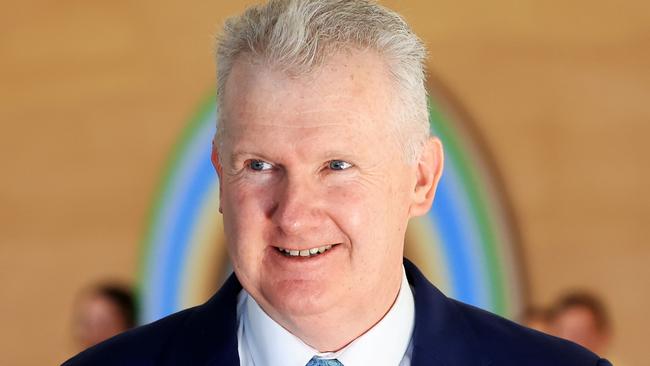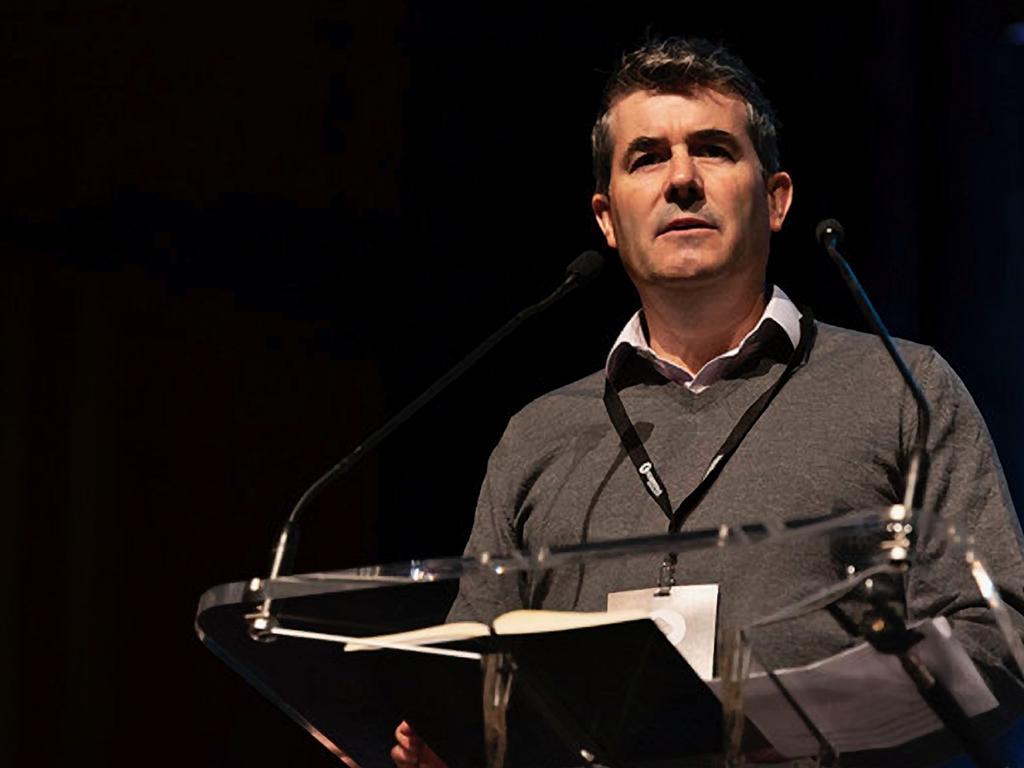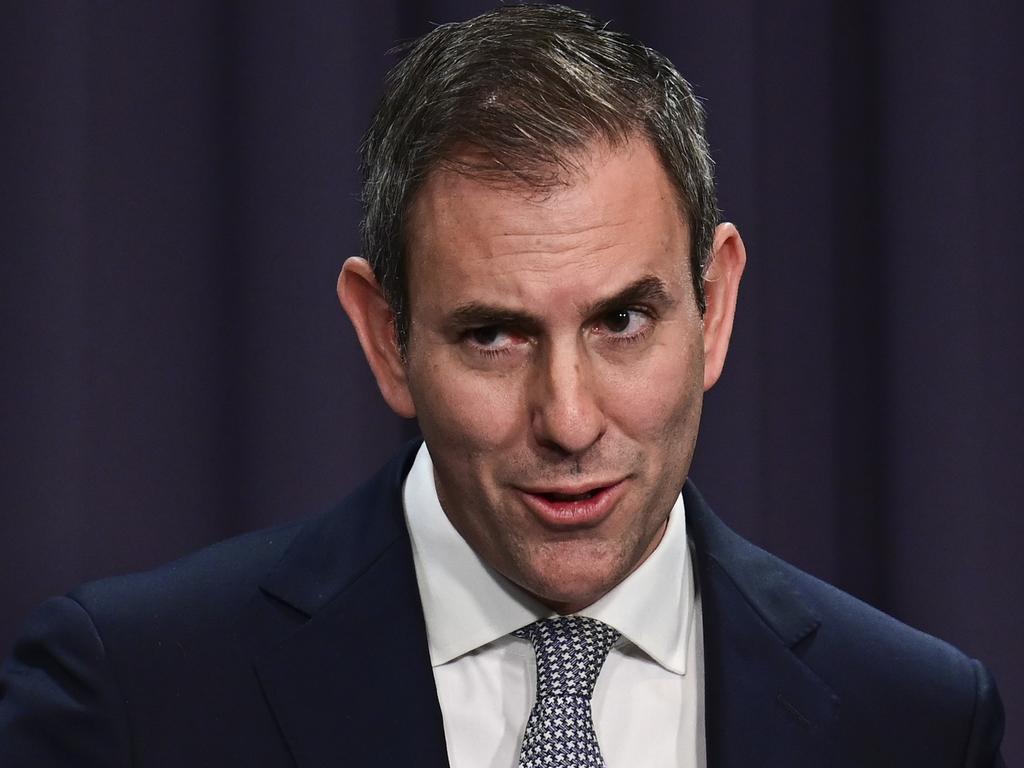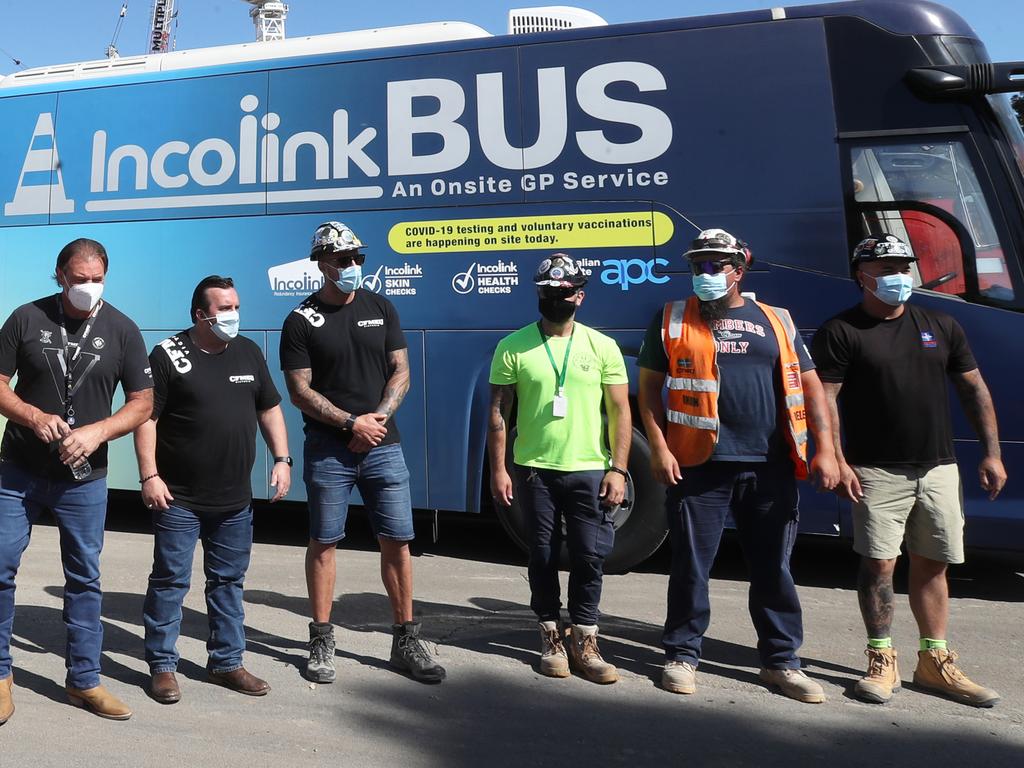Labor risks war with business over extra casual workers rights
Tony Burke has accused employers of ‘double dipping’ by denying workers job security while reaping the benefits of a reliable workforce.

More than 850,000 casual workers could become permanent employees under Labor’s latest tranche of workplace reforms, after Industrial Relations Minister Tony Burke stepped up his war with business by unveiling a plan to re-legislate the definition of casual work.
Mr Burke, in extracts from a speech to be delivered to the Sydney Institute on Monday evening, accused employers of “double-dipping” by denying Australians job security while reaping the benefits of a reliable workforce.
Business groups are opposed to changing the casual employee rules, which they say give workers strong rights to shift to permanent status, and have warned further tweaks could force as many as one in three casual workers on to permanent contracts.
Mr Burke said the bill put to parliament would remove the risk of employers being on the hook collectively for tens of billions of dollars in compensation for unpaid leave, in the instance where casuals were ruled to be permanent staff.
The Albanese government estimates the changes will help more than 850,000 casual workers with regular work arrangements to access the benefits of leave entitlements and more financial security if desired.
“Many casuals won’t want a permanent job – if you’re a student or just working a casual job to make some extra money, this change won’t matter to you,” Mr Burke said.
“But there are casual workers who are trying to support households. They’re being used as though they’re permanent workers and the employer is double dipping – taking all the advantages of a reliable workforce and not providing any of the job security in return. That loophole needs to be closed.”
Mr Burke on Sunday told Sky News that he wanted to create a right for casual employees to become permanent if their work patterns supported it, but that the decision would ultimately be down to individual workers.
“What we’re saying is: if you want to apply to switch from being a casual to a permanent because you are working permanent hours anyway, then from the time you change, you no longer get the loading. You just change to being a permanent from then on,” Mr Burke said.
The news came as the minister on Sunday announced the appointment of 12 members to the newly created National Construction Industry Forum, split evenly between union and industry groups, but not including a representative from Master Builders Australia.
Despite opposition from the industry, Labor abolished the Australian Building and Construction Commission following its election. Mr Burke said the NCIF was the start of a “conversation” on workplace rules on sites. “As a priority, the forum will look at issues around gender equity, particularly the recruitment and retainment of women workers,” he said.
The 12 members include heads of the Housing Industry Association, Australian Constructors Association, and private firms, as well as officials from the CFMEU, the Australian Workers Union, and the Australian Manufacturing Workers’ Union.
Master Builders Australia chief executive Denita Wawn said her 33,000-member industry group was “disappointed to have been excluded from the forum. “We had hoped it would include all key voices of the building and construction industry and make genuine attempts to address some of the challenges faced by our industry,” Ms Wawn said.
Australian Constructors Association chief executive Jon Davies was more positive: “Today’s announcement highlights the forum’s significance as a space for collaboration so we can tackle the industry’s most pressing challenges together,” he said.
With employers sceptical about changes around casual workers, the Albanese government remains at odds with business groups over Labor’s second wave of workplace reforms, which Mr Burke said was aimed at closing loopholes.
These reforms include the “same job, same pay” rules to crack down on the use of labour-hire firms, pushing for more protection for gig-economy workers, and criminalising wage theft.
Mr Burke dismissed concerns that the “same job, same pay” rules would mean workers with more experience would get the same pay as greener employees.
He said he had told employer groups “privately and publicly” that this was never a part of the proposed changes.
Minerals Council of Australia chief executive Tania Constable said the changes had “nothing to do with closing loopholes. “It is a policy that will smother every sector of the economy and prevent workers being paid according to their skills and experience,” she said.








To join the conversation, please log in. Don't have an account? Register
Join the conversation, you are commenting as Logout